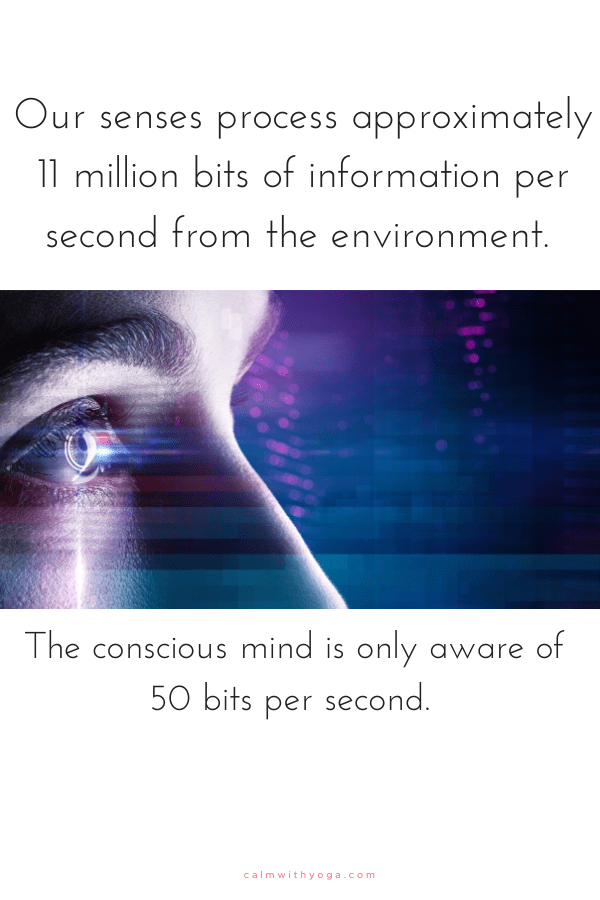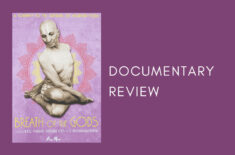Nothing can bring you peace but yourself.
– Ralph Waldo Emerson
Anxiety Disorders: An Overview & Risk Factors
If you struggle with chronic anxiety you know how draining and taxing daily life can be.
If you look at worldwide stats you’ll notice a global trend – anxiety is on the rise.
According to the Anxiety and Depression Association of America, anxiety disorders are the most common mental illness in the United States, impacting 40 million adults over 18 years of age. (1)
The National Institute of Mental Health says the following are risk factors for anxiety: (2)
- Having experienced trauma or a significantly stressful life event in early childhood
- A family history of anxiety or other mental illnesses in a loved one and blood relatives.
- Medical conditions and health problems such as thyroid issues or heart arrhythmias
Types of Anxiety Disorders:
1 – Generalized Anxiety Disorder (GAD)
Acute or excessive worry about any life aspect that lasts six months or longer.
2 – Panic Disorder
Experiencing chronic panic attacks and feelings of terror and intense dread. The fear of having a panic attack in public can also lead to agoraphobia.
3 – Post-Traumatic Stress Disorder
Constantly reliving a traumatic or near-death experience in the form of vivid dreams, flashbacks, and memories.
4 – Social Anxiety Disorder
Acute fear or social phobia in normal social situations causing the desire for social isolation.
5 – Obsessive-Compulsive Disorder (OCD)
Obsessive and uncontrollable thoughts accompanied by compulsive and/or repetitive actions performed as a way to relieve the anxiety caused by such thoughts.
Co-Occurring Disorders:
Substance abuse often accompanies other disorders like anxiety, depressive disorders, and eating disorders.
Symptoms of Anxiety:
The effects of anxiety are widespread.
They don’t just impact ongoing mental health; they also impact physical health in various ways.
Many of the physical symptoms of anxiety are caused by an influx in the secretion of stress hormones.
This often unmanaged and chronic stream of stress hormones running through the body causes the immune system to weaken and can lead to a host of chronic health issues.
Anxiety raises your heart rate and blood pressure.
It increases blood flow to your extremities (prepping you to either fight or flee) and can cause heart palpitations, chest pain, and even increase your risk of heart attack and heart disease.
Anxiety causes muscle tension and because it shuts down digestive function can also cause stomachaches and poor digestion which can lead to a series of other issues too.
When you’re anxious you tend to breath faster, shorter, and more erratically. This can cause you to feel shortness of breath.
It doesn’t matter what type of anxiety disorder you experience, it impacts your quality of life and puts you at risk for developing multiple potential physical illnesses.
That’s why it’s so important to take the necessary steps to manage mood and anxiety in the most natural, efficient, and effective ways possible.
Keep reading to find out how…
How anxiety impacts your nervous system:
Your autonomic nervous system overseas many vital bodily processes such as heart rate, blood pressure, breathing rate, etc.
It has two branches that act very much like a gas pedal and a brake pedal:
Sympathetic nervous system: Is the ‘gas pedal’ and activates your energy reserves so you either fight or run away from potential threats. This system is responsible for your stress response.
Parasympathetic nervous system: Is the ‘brake pedal’ which oversees your relaxation response.
Parasympathetic activity helps to replenish energy reserves and helps overall well-being.
When you experience chronic anxiety your gas pedal is on overdrive and your brake pedal can’t be activated so you’re left with low energy reserves and often also chronic fatigue.
Unmanaged long-term anxiety is a common cause of autonomic nervous system dysfunction (dysautonomia) because it hinders the parasympathetic system from working properly.
The end result – an imbalance is created and in order to restore optimal autonomic function, you’ll need to activate your parasympathetic by learning to send safety signals to your body.
More on that later.
Your nervous system is just trying to protect you:
Your nervous system, in fact, is a circulating nervous system. It thinks. It’s conscious.
– Deepak Chopra, doctor & author
Anxiety causes your nervous system to act as a wild horse.
This wild horse is hard to control and often overpowers your efforts to manage it.
In this sense, when the horse is in control, it becomes the master and you become the slave.
You lose control of the reins.
This means that your nervous system is on high alert and in defense mode.
Why?
Because the #1 purpose of anxiety is to protect you from perceived harm, whether it’s real or not.
The symptoms of anxiety can feel really uncomfortable, so it’s easy to associate anxiety with pain.
And yet, there’s another side to your anxiety – a positive side too.
Anxiety can also be your ally when you understand that really, it’s only looking out for you.
As a defense mechanism, anxiety is there to ensure your survival by activating your energy reserves so you can take quick action to either fight or run away from the potential threat (aka: fight or flight response)
The issue is that your nervous system can get stuck in loops that cause it to misread and misperceive your environment.
It’ll mistake what’s harmless for what’s threatening.
It’ll dramatize your experience.
It’ll sound off the alarms unnecessarily and cause you to spin your wheels and deplete your vital energy reserves.
If this happens often enough, and you don’t replenish your energy reserves you’ll soon find yourself stuck in a vicious cycle:
anxiety –> fight or flight –> draining energy –> weakened mind and body –> exhaustion/burnout –> anxiety
Think of it like a bucket full of vital energy and anxiety creating leaks that drain your reserves.
Being in a constant state of defense and protection without replenishing eventually wears you out mentally, emotionally, and physically.
It makes anxiety worse.
Your nervous system is intelligent, take advantage of it

Your nervous system is the crowning achievement of your body’s intelligence.
Everything you perceive through your senses – everything you can see, hear, taste, smell, intuit, and touch is processed through the nervous system.
Like a good gatekeeper, it helps you maneuver through life by keeping track of every single little sensory detail of your experience so you don’t consciously have to.
Your nervous system is constantly sifting through astounding amounts of data while it scans your environment and processes your surroundings.
It matches incoming sensory information with previously recorded data in order to match relevant patterns:
When you experience anxiety and keep reacting in the same emotional way over and over, you condition your nervous system to (mis)read your environment based on past experiences, and the associations and perceptions you’ve formed around those experiences.
Your nervous system then, being the intelligent processor and gatekeeper, diligently keeps seeking and running those old-patterned programs and subconscious emotional memories over and over recreating the same or similar experiences and reactions in an attempt to reconcile its pattern matching nature.
Pair this with future anticipation and expectations based on past experiences, and it’s easy to see how you could be setting your own self up for frustration.
This creates the vicious cycle that leaves you feeling exhausted, drained, and of course, feeling even more anxious!
Most of this happens underneath your conscious and voluntary level of awareness.
The speed at which your nervous system processes all of this environmental information is lightning quick, which is why so often it feels like your mental and emotional state is out of your control.
What your nervous system needs is safety signals so it knows to calm down.
It’s up to you to actively and regularly send your own body these signals…
4 ways Yoga helps you send safety signals to your body:
Yoga has a sly, clever way of short-circuiting the mental patterns that cause anxiety.
– Baxter Bell, yoga teacher
With anxiety, it can often feel like nothing is in your control no matter what you do or don’t do.
This adds fuel to an already overactive fire and you’re left even more exhausted and frustrated.
One effective way to calm body and mind naturally is to regularly practice yoga both on and off the mat.
The following four types of yoga practice will help calm and soothe your nervous system by sending it signals of safety.
These signals will cause it to shift gears from stress response to relaxation response:
1- Asana (yoga poses)
Regular mindful body movement such as yoga flows help the body expel excess nervous energy.
Asana also helps activate the parts of your body responsible for lowering stress hormones and increasing healing and regenerative hormones such as oxytocin.
It helps to activate glands and pathways responsible for strengthening the immune system, which becomes very compromised when you’re chronically stressed and overloaded.
2- Pranayama (breathwork)
One of the best things you can do for your anxiety is to adopt a daily breathing practice to activate your relaxation response and send safety signals throughout your nervous system.
Deep, slow, conscious belly breathing has been proven to help in stress relief and the management of anxiety, insomnia, panic attacks, and PTSD.
Yogic breathing helps to maintain vital energy levels while calming the mind and body.
3- Dharana (one-pointed focus)
One of the first things that’s hijacked with anxiety is your focus and attention.
The yogic practice of Dharana can help you reclaim back your attentional power.
It’s a simple yet powerful practice that involves focusing your entire attention on one thing – be it your breath, a mantra, or a part of your body.
Here’s a way to practice Dharana via the breath.
4- Dhyana (meditation)
Meditation is an excellent way to not only take control of your anxiety but train your mind to go inward and focus on cultivating a state of inner peace and serenity.
Yes, it takes work to create a daily meditation practice – but it takes more work to struggle with anxiety daily.
Here’s a guided meditation to help get you started.
https://soundcloud.com/calmwithyoga/self-realization-meditation-dissolve-fear-anxiety-overwhelm
REFERENCES
:
(1) https://adaa.org/about-adaa/press-room/facts-statistics
(2) https://www.nimh.nih.gov/health/topics/anxiety-disorders/index.shtml#part_145335












